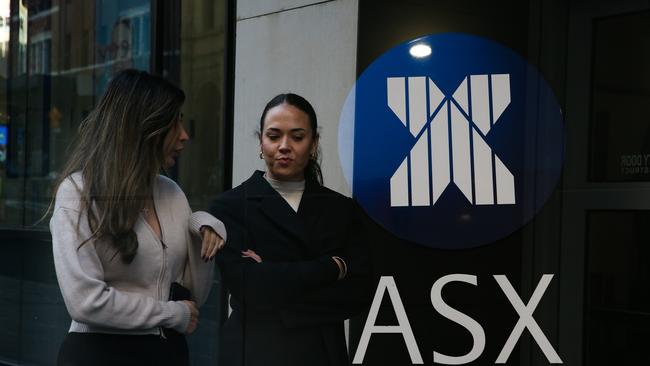Labor superannuation tax changes could lead to a blue-chip stock sell-off, including the banks
One of Australia’s top banking analysts says if Labor changes superannuation tax rules, blue-chip stocks such as the banks could face ‘sporadic bouts of substantial selling’.

About $34bn of bank shares and blue-chip stocks held by self-managed super funds is likely to be hit with “bouts of substantial selling” to fund Labor’s new unrealised capital gains tax, Australia’s top banking analyst predicts.
As Anthony Albanese welcomed a potential deal with the Coalition on changing tax rates on superannuation earnings in exchange for dropping the unrealised gains tax component of the deal, other politicians such as renegade Nationals senator Matt Canavan said there is “no way in hell” his party will support Labor’s proposed super tax.
Now the head of bank research at top investment bank Barrenjoey, Jon Mott, is asking if bank shares could be collateral damage from super tax changes.
“If super rules are changed, we believe blue-chip stocks like the banks could see sporadic bouts of substantial selling to fund potential super tax invoices in coming years,” Mr Mott said in a note to clients.
Labor wants to increase the tax rate on superannuation accounts of $3m to 30 per cent and introduce unrealised capital gains tax, too.
Business leaders, Labor aligned investors, economists and academics have raised serious concerns about the unrealised gains tax component, which could lead to an exodus of capital in key areas of investment such as startups, small renewable energy and mining companies, and now blue-chip stocks.
While Treasurer Jim Chalmers has asserted the change would be “modest”, Mr Mott said the impact could be far-reaching.
“Although other blue-chip stocks are also likely to be impacted, the overweight position that many under-advised SMSFs have in the banks makes this a greater risk,” he said.
“We have spoken with a number of adviser and wealth platforms which specialise in high net worth clients. These platforms’ funds under administration represent about 7 per cent of the registers of the major banks.”
The Greens are willing to back Labor on the new tax, but they want the threshold to be lowered to $2m, which would leave 100,000 superannuants from day one paying the tax and eventually as many as 1.8 million Australians paying it if it remained unindexed.
Mr Mott estimates that under-advised SMSFs worth more than $2m currently hold about $34bn of bank shares, which make up about 6 per cent of the bank shares registers.
He said the sell-off would likely follow “periods when illiquid assets like property have rallied”.
Many superannuants have told The Australian they would sell out of their accounts and buy properties.
Coalition treasury spokesman Ted O’Brien will tell an event hosted by the Property Council of Australia on Wednesday that Labor’s proposal would make housing even less affordable, as investors moved their money out of superannuation into property to avoid the tax.




To join the conversation, please log in. Don't have an account? Register
Join the conversation, you are commenting as Logout